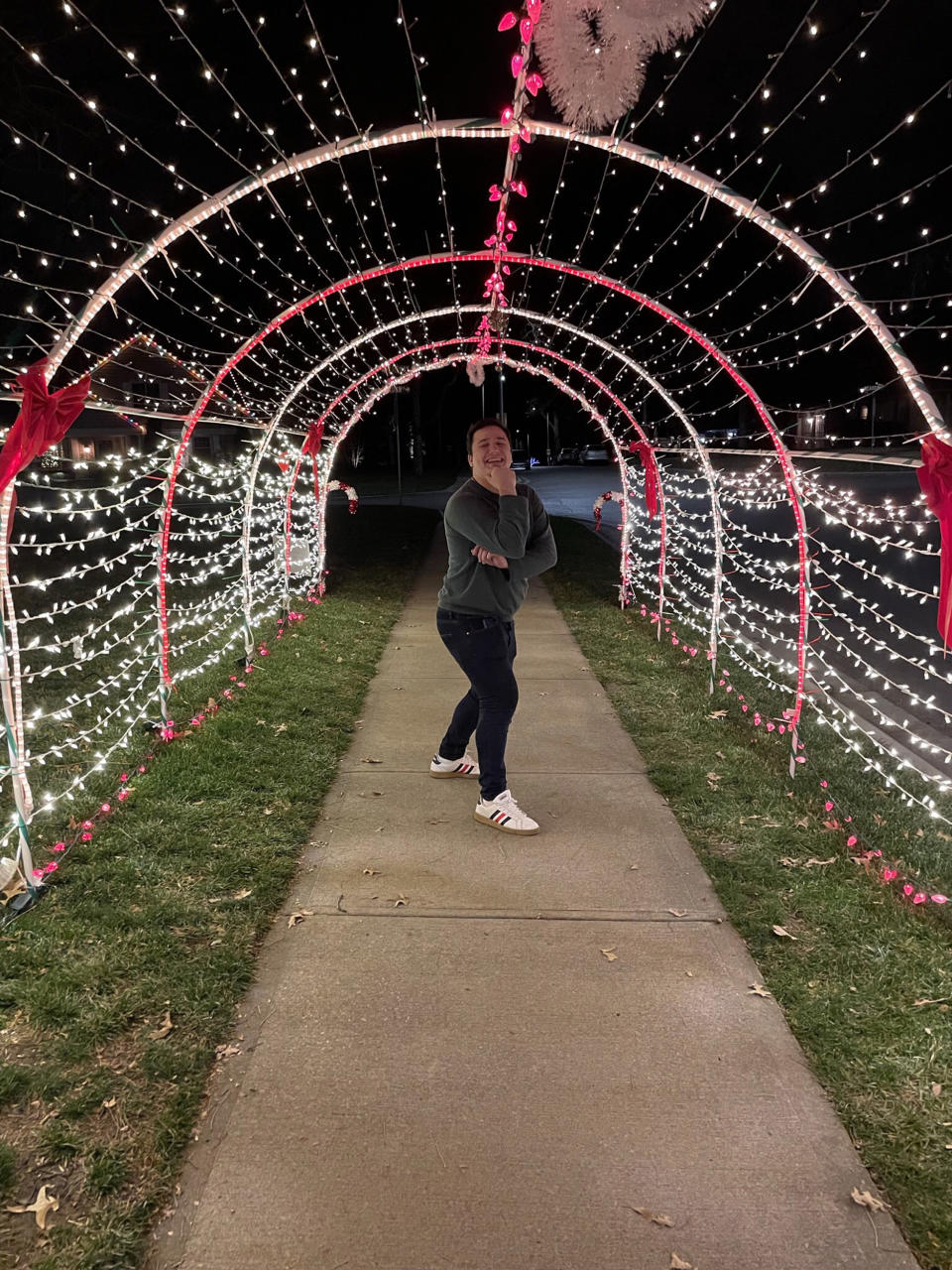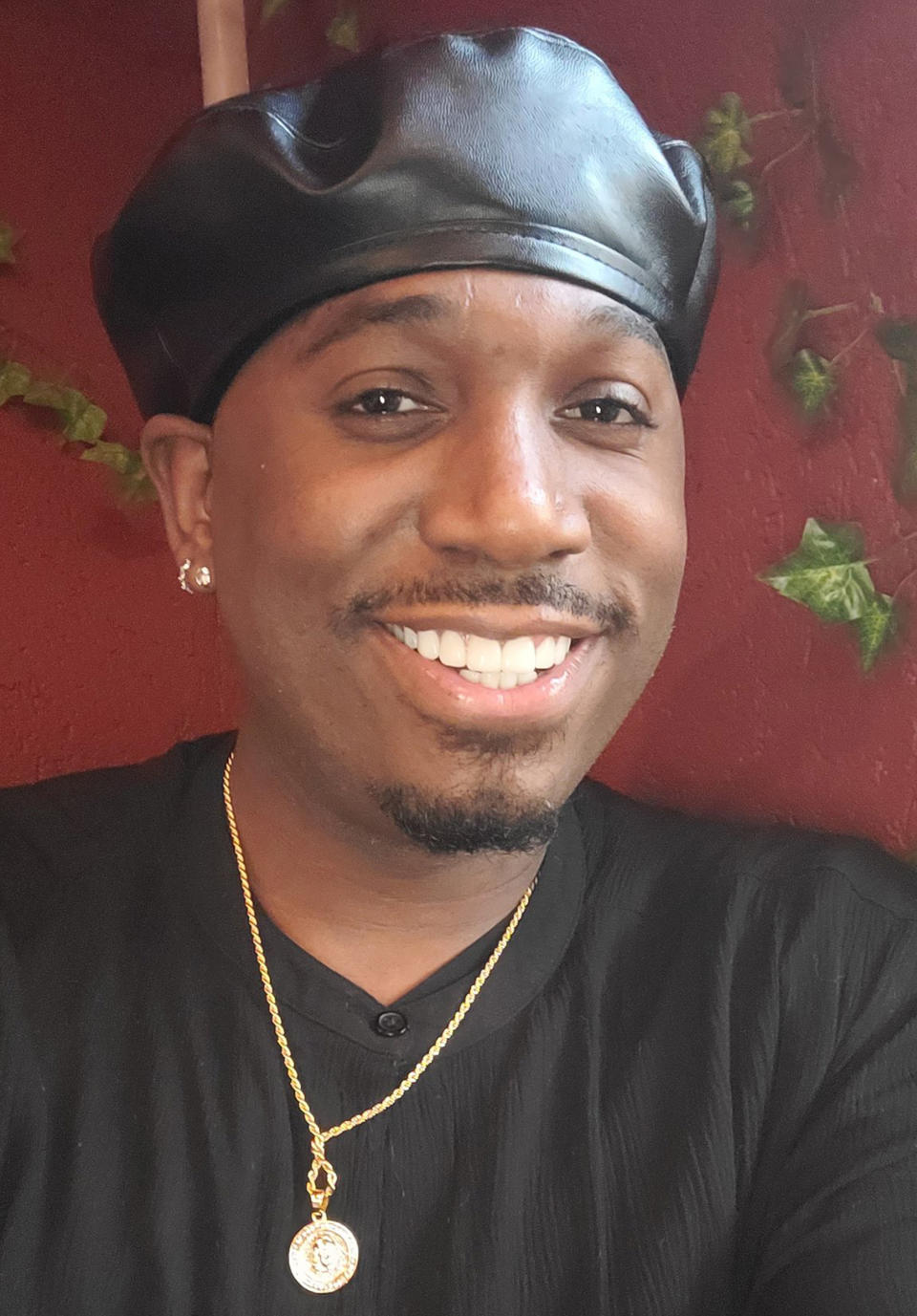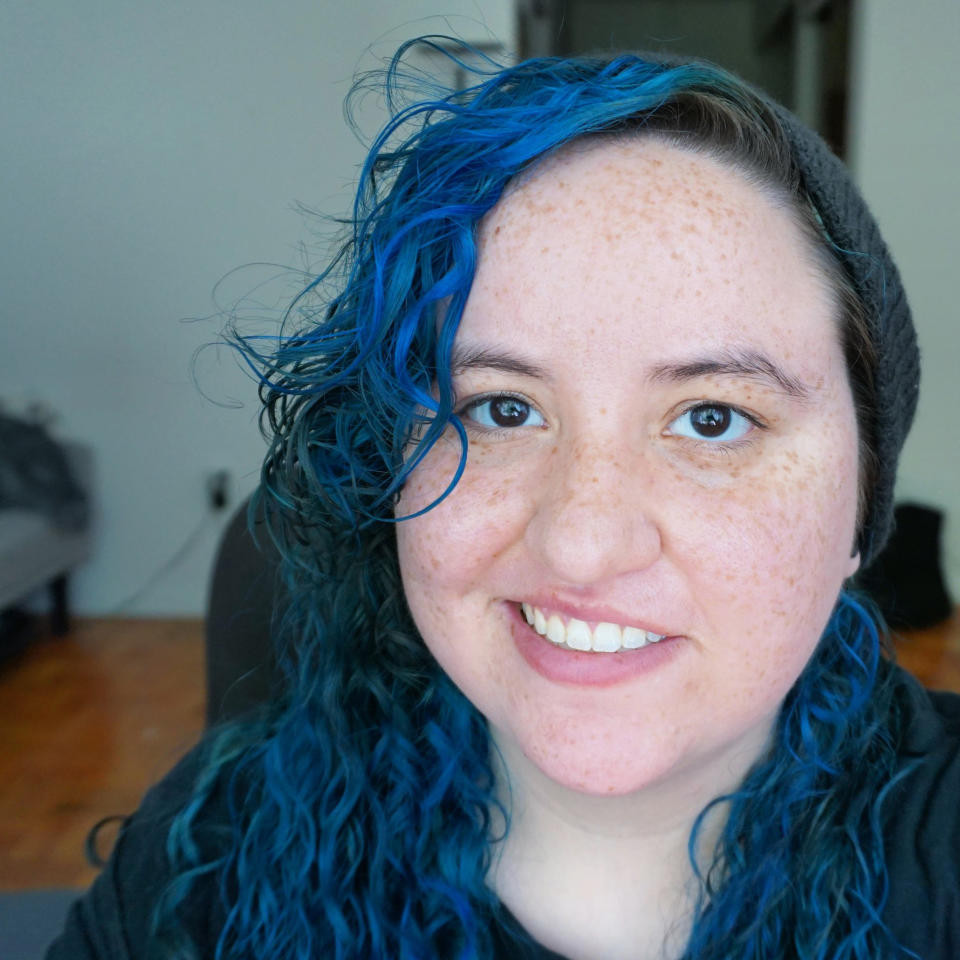LGBTQ students more likely to leave home for college in more welcoming states

Chris DeSett said the first time he started to feel comfortable with his sexuality was the first night he moved into a dorm at American University in Washington, D.C.
DeSett, 28, moved there ahead of his freshman year in August 2012, from his childhood home near Kansas City, Missouri. He chose the school for its international studies program but also because he wanted to get out of the Midwest to figure out who he was away from his family.

After he moved into his dorm, and everyone’s parents had left, he said other students started banging on doors to gather people to hang out together.
“So we’re all rushing down to this meeting area, and we’re talking and we’re playing ‘Never Have I Ever’ and stuff like that,” he said. “It felt very welcoming and felt very affirming, and I kind of dipped my toe in the water and just said, ‘Oh, I think I might be bisexual.’ I didn’t feel that way, but I was just testing the waters for a reaction. And everyone’s like, ‘Oh, my God, that’s so great.’”
After the first semester of his freshman year, he came out as gay. He said that moment on the first night in the dorms had a lasting impact on him.
“The reason why that’s so important to me was I wasn’t met with rejection,” said DeSett, who now works for the federal government. “That affirming environment did give me the confidence to really explore my identity and then land on the conclusion that, ‘No, I am a gay man, and I’m confident that I know that for a fact. I know that I’ll be loved for who I am.’”
Related video: Nonprofit releases 'worst list' of 180 colleges 'unsafe' for LGBTQ students
New research from the Williams Institute, a think tank at the UCLA School of Law, revealed that LGBTQ people who attended college or graduate school were four times more likely, at 21.5 percent, to report having chosen a university in a different city or state to seek a more welcoming climate than non-LGBTQ people, at 4.8 percent. Nearly one-third, or 32.6 percent, of LGBTQ people reported picking a college elsewhere to get away from their family, compared to 14.1 percent of non-LGBTQ people.
DeSett said he chose a school in Washington, D.C., because he “wanted an experience where I had room to grow and be myself without having to worry about someone calling my parents” and outing him before he was ready.
The Williams Institute found the majority of LGBTQ people surveyed, at 71.9 percent, said they experienced a sense of belonging at their college. That number is slightly lower than non-LGBTQ people, at 83.5 percent.
But, researchers noted, despite some LGBTQ people’s efforts to find more welcoming environments, more of them reported facing bullying, harassment, assault and mental health issues than their non-LGBTQ counterparts. Nearly one-third (32.6 percent) of LGBTQ people who attended a four-year college or graduate school said they experienced bullying, harassment or assault, compared to 18.9 percent of non-LGBTQ people. More than one-third (35.3 percent) reported that their mental health was not good for all or most of the time they were in college, compared to 10.8 percent of non-LGBTQ people.
Majorities of LGBTQ people in four-year colleges (60.4 percent) and graduate school (56.3 percent) also said they were not out as LGBTQ to any faculty or staff.
Adon Cooper said he thought he would feel comfortable being out when he started undergrad in 2004 at the State University of New York at Purchase, a public liberal arts college about a half-hour north of his home in the Bronx borough of New York City.
“Literally, the first time walking on campus, I was greeted by a bunch of drag queens, and I thought, ‘Oh, this is going to be really cool,’ but I realized that I wasn’t really ready to have those kinds of conversations,” Cooper, 35, said.

Even though he wasn’t ready to be out, he said he faced peer pressure and verbal abuse from people who tried to force him to come out.
But he said college was still where he found his “footing,” and he started to feel more comfortable with the idea of coming out. One day, his first roommate in college, who was a dancer, went into the bathroom “as his normal self and came out fully in drag,” Cooper recalled.
The two talked about drag and watched “Paris Is Burning,” a 1990 documentary about New York City’s ball scene, a subculture created by LGBTQ people of color where members of different “houses” dress up and compete in elaborate balls. He said they are still friends.
“He started to really educate me on what a queer lifestyle can look like, and it made me feel like maybe if and when I’m ready, I’ll at least have someone I feel comfortable enough to have this conversation with,” he said.
The report found that transgender and gender-nonconforming students face additional issues, including their colleges or universities lacking policies to support them. Resources for transgender students were less commonly reported by participants than general LGBTQ resources. One in four LGBTQ respondents reported that their school had a policy of allowing transgender students to change their gender markers on their school records, and more than half (59.8 percent) were unaware of such policies.
Less than half (44 percent) of LGBTQ respondents reported the presence of at least one gender-neutral bathroom, and less than one-third (29.3 percent) reported that their college had gender-inclusive housing, defined as housing that isn’t segregated into men’s and women’s spaces and welcomes students who identify outside of the gender binary.
JJ Nichols, who uses gender-neutral pronouns, attended Samford University, a private Christian school outside of Birmingham, Alabama, starting in 2013. They said they didn’t come out until two years after they graduated, but, looking back, they said if they had asked to use gender-neutral pronouns at school, it “would be met with a lot of pushback.”

“It’s still inside Birmingham, which is the major city, so the homophobia was low-lying,” they said. “It was like more of that, ‘Love the sinner, hate the sin.’”
They said they weren’t aware of an active LGBTQ group on the campus while they attended, but they heard of controversy surrounding the creation of one their senior year.
The Williams Institute researchers concluded that their findings show “the need to improve conditions for LGBTQ students, a sizable and heterogeneous minority population.” They recommended that colleges include sexual orientation and gender identity in nondiscrimination policies that protect LGBTQ students, faculty and staff; include LGBTQ content in diversity training for staff; and start a campus climate survey to identify emerging issues, among other suggestions to make campuses safer for LGBTQ students.
Nichols said that, despite the climate at their school, they remember meeting a professor in the school of music who helped them feel a little more comfortable with their identity. The teacher was pregnant, and she made a comment that if she had a son who was gay, it wouldn’t be a problem.
“It was just the note — the knowledge that somebody was OK,” they said.

